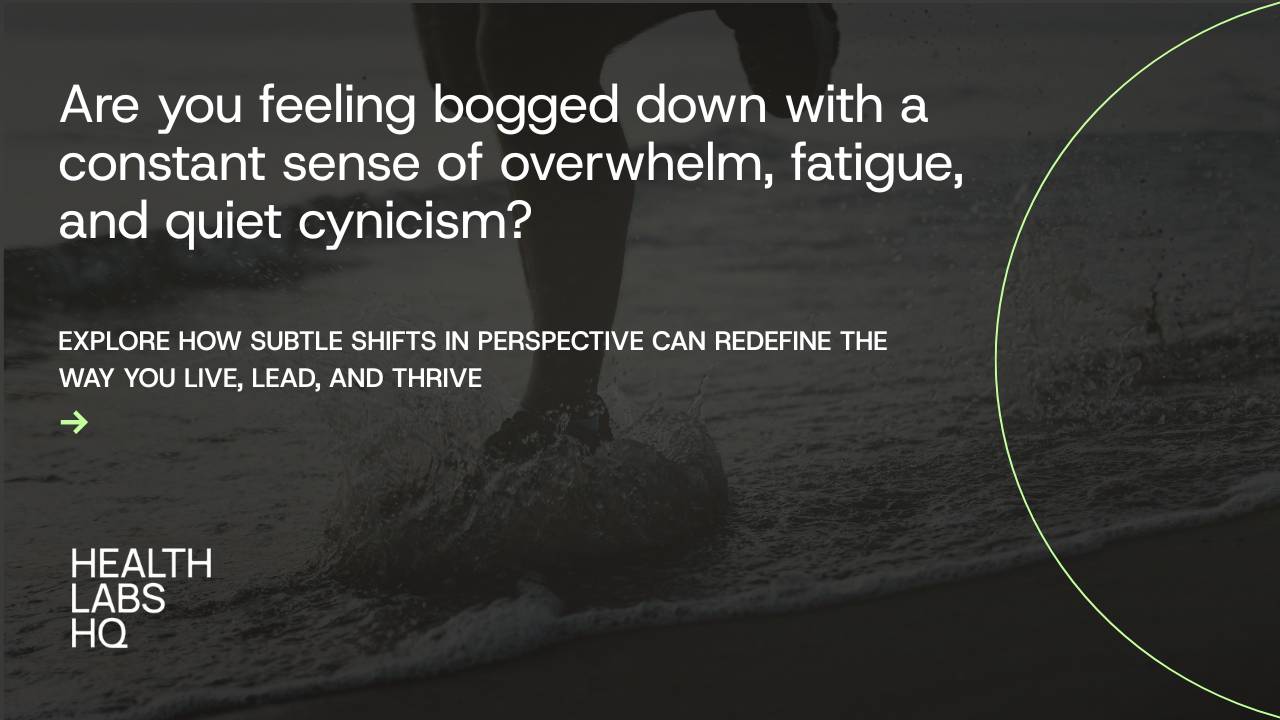
Mental Health in a Heavy World- The Power of Positive Psychology
Oct 31, 2025In a world saturated with noise, uncertainty, and relentless demands, even the most composed minds are beginning to fray. Positive Psychology offers a refined, science-backed approach to mental fitness- helping you stay grounded, focused, and fulfilled when the pace of modern life feels overwhelming. In this piece, we explore the quiet strength that comes from mastering your mindset and how subtle shifts in perspective can redefine the way you live, lead, and thrive.
Finding Clarity and Strength in an Overloaded World
Let’s be honest, the last few years have been heavy. A global pandemic, political instability, endless bad news cycles, the pressures of economic uncertainty, and now the digital noise of AI-generated everything. Even the most resilient among us are feeling the weight.
Every headline seems designed to provoke, every feed optimised for outrage. The result? A constant sense of overwhelm, fatigue, and quiet cynicism. Still, every so often, something cuts through the noise- laughter at the dinner table, a small win at work, a reminder that life is still good.
That’s where Positive Psychology comes in, not as a soft or sentimental concept, but as a science-backed framework for resilience, performance, and happiness.
What Is Positive Psychology?
Positive Psychology is the science of what makes life worth living, the strengths, virtues, and mindsets that help individuals and communities thrive.
It’s not about ignoring problems or pretending everything’s fine. It’s about training your attention, shifting your mental lens from what’s broken to what’s possible.
At its core, Positive Psychology teaches us that happiness isn’t something that happens to us. It’s something we can train for- much like physical fitness or business success.
Why It Matters Now (More Than Ever)
In today’s world, the expectation to stay composed, decisive, and high-performing, even in chaos, is relentless.
Positive Psychology offers something rare: an evidence-based toolkit for restoring mental clarity, improving resilience, and deepening connection.
Here’s how it helps:
- Build Emotional Resilience
You can’t control the noise- but you can control your response.
Positive Psychology helps you develop mental “shock absorbers” to handle uncertainty, pressure, and stress.
- Enhance Decision-Making
A positive, solution-focused mindset fuels creativity, innovation, and better leadership decisions- even under pressure.
- Strengthen Relationships
Gratitude, empathy, and perspective-taking create trust and connection, whether in the boardroom or at home.
- Boost Energy and Performance
Studies show that optimistic, purpose-driven individuals perform better, recover faster, and experience lower burnout (Fredrickson, 2001; Lyubomirsky, 2005)
How to Apply It in Everyday Life
You don’t need hours of meditation or a retreat in the mountains. These small, science-backed habits can rewire your brain for focus and resilience.
1. Start with Gratitude -Each morning or evening, write down three things you’re thankful for. It sounds simple, but research shows it retrains your brain to notice positives instead of threats.(Emmons & McCullough, 2003)Try this: Do it for seven days straight. Notice how your mindset shifts.
2. Reframe the Challenge- When something goes wrong (and it will), ask: What is this teaching me? That small shift moves you from frustration to growth, from victim to problem-solver.
3. Align Goals with Values- Purpose is performance fuel. Set goals that connect to what matters most, your values, not just your KPIs. When purpose drives action, motivation follows naturally.
4. Invest in Connection- Success can be isolating. Make time for people who ground you, those with whom you can be real, laugh, and recharge. Connection is one of the strongest predictors of resilience and longevity. (Harvard Study of Adult Development, 2017)
Guard Your Attention
Curate what you consume. Protect your mental inputs as fiercely as your business assets, whether that means muting toxic feeds or switching off notifications.
Focus on what you naturally do best. Positive Psychology calls this “flow” - the state where you lose track of time because you’re doing something deeply meaningful. That’s not indulgence, it’s peak performance.
Final Thought
We can’t control the headlines, algorithms, or uncertainty of what’s next. But we can control how we show up, for ourselves, our teams, and our loved ones.
Positive Psychology isn’t about pretending everything’s perfect. It’s about building the internal tools to stay well, stay focused, and stay hopeful, even when the world isn’t.
Because leadership starts from within. And in uncertain times, that’s where real power lives.
References:
Emmons, R. A., & McCullough, M. E. (2003). Counting blessings versus burdens: An experimental investigation of gratitude and subjective well-being in daily life. Journal of Personality and Social Psychology, 84(2), 377–389.
Fredrickson, B. L. (2001). The role of positive emotions in positive psychology: The broaden-and-build theory of positive emotions. American Psychologist, 56(3), 218–226.
Lyubomirsky, S., King, L., & Diener, E. (2005). The benefits of frequent positive affect: Does happiness lead to success? Psychological Bulletin, 131(6), 803–855.
Seligman, M. E. P., & Csikszentmihalyi, M. (2000). Positive psychology: An introduction. American Psychologist, 55(1), 5–14.
Vaillant, G. E. (2012). Triumphs of experience: The men of the Harvard Grant Study. Belknap Press.
Walsh, R. (2011). Lifestyle and mental health. American Psychologist, 66(7), 579–592.
